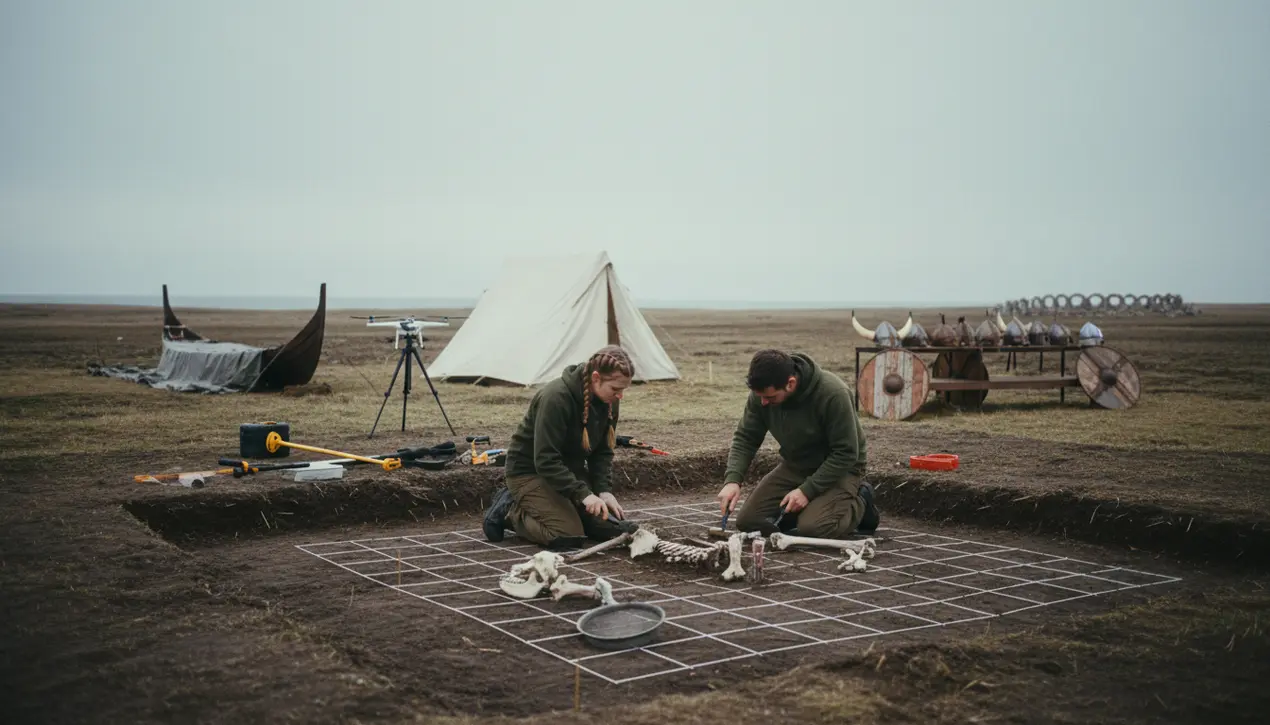
SciencearchaeologyAncient Civilizations
Modern Scholars Dismantle the Viking Myth: Beyond Horned Helmets and Berserkers
AN
Andrew Blake
7 hours ago7 min read1 comments
The iconic Viking of popular imagination—a horn-helmeted berserker fueled by mead and mayhem—is being systematically deconstructed by contemporary scholarship. According to experts, our standard historical narrative is not a direct account from the Viking Age, but a layered text repeatedly rewritten to serve later agendas.Foundational sources, including the Icelandic sagas and the Prose Edda, were composed by Christian authors long after Scandinavia's conversion, inevitably coloring pre-Christian beliefs with a post-conversion worldview and reshaping mythological figures to align with new moral frameworks. This reinterpretation gained momentum during the 19th century's Romantic nationalist movements, where figures such as Richard Wagner and Scandinavian thinkers reinvented the Viking as a symbol of heroic, racially-pure ancestral valor, a narrative tool used to construct modern national identities.This romanticized archetype was later appropriated by 20th-century extremists, most infamously the Nazis, who weaponized runic symbols and a distorted Nordic past to promote a toxic ideology of racial supremacy—a legacy that persists in some neo-pagan and white nationalist circles. Today's pop culture, from the video game *Assassin's Creed: Valhalla* to Marvel's Thor, continues this tradition of selective adaptation, often smoothing over the complex and harsh realities of Norse society in favor of a more marketable, heroic, or comedic figure.Armed with advanced tools like isotopic analysis of skeletal remains and detailed settlement studies, modern archaeologists and historians are now assembling a more nuanced portrait. Their research reveals the Vikings not simply as raiders, but as sophisticated traders, explorers, and settlers whose vast networks extended from North America to the markets of Baghdad.This academic work is vital, as it actively dismantles dangerous historical fabrications, demonstrating how a malleable past is continuously shaped to influence modern conceptions of identity, belonging, and political ideology. It serves as a powerful reminder that history is not merely about the past, but an ongoing dialogue about who we are and who we aspire to become.
#featured
#Vikings
#Norse mythology
#historical reinterpretation
#medieval sources
#pop culture
#neo-paganism
#nationalism
Stay Informed. Act Smarter.
Get weekly highlights, major headlines, and expert insights — then put your knowledge to work in our live prediction markets.
Related News
Comments
Loading comments...
© 2025 Outpoll Service LTD. All rights reserved.